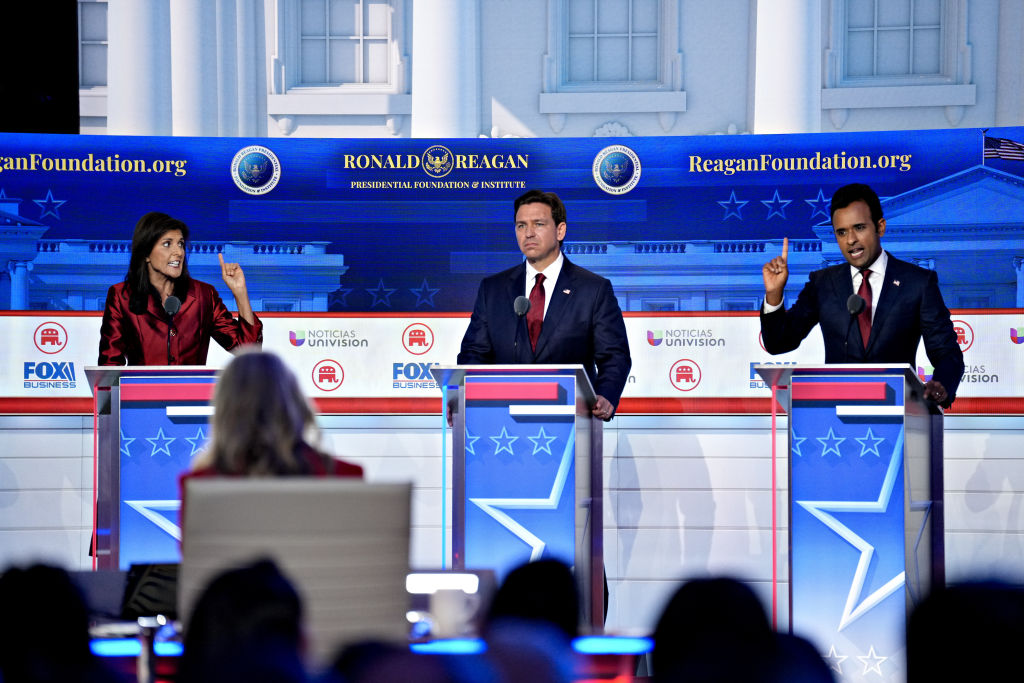The idea that the U.S. should use military force against drug cartels in Mexico has become increasingly popular among legislators and candidates from the Republican Party. During the second Republican debate, for example, Ron DeSantis promised to send the U.S. military into Mexico to take on the drug cartels. What could go wrong? Numerous analysts have pointed out that such talk of war is not only misguided and dangerous, but also has the potential to seriously strain U.S.-Mexico ties—precisely at a time when a functioning bilateral relationship is crucial to strengthening trade ties and addressing issues such as migration and transnational crime.
Yet while the proposal is unlikely to be put in practice considering the massive risks involved and the lack of appetite among the American public for another “forever war”—the topic has the potential not only to negatively affect the United States’ ties to Mexico, but to Latin America more generally. Just like in 2019, when U.S. President Trump called military intervention in Venezuela “an option”, even Latin American leaders friendly to the United States will see no other option but to close ranks and unite behind the Mexican president. Back in 2019, even Colombia’s President Iván Duque and Brazil’s President Jair Bolsonaro, keen to deepen ties to Trump and eager to weaken Maduro, rejected any talk of U.S. military intervention outright—largely due to the dangerous precedent it would create. Despite their strong antipathy to Maduro, Brazil’s military leaders thus sided with the Venezuelan leader.
Today’s discussion about military intervention in Mexico has the potential to do far more damage than Trump’s veiled threats about invading Venezuela back in 2019. After all, the United States is initiating a presidential campaign—the world’s most visible political event, which the Latin American media will cover intensely for most of the year—and given that a sizeable part of the U.S. electorate supports military strikes against Mexico, Republican candidates may try to outbid each other in proposing military intervention to combat Mexican drug cartels. While the period of Trump’s controversial comments about Venezuela was relatively brief and Maduro was not at the top of the U.S. political agenda, the severity of the opioid crisis in the United States, which killed more than 80,000 U.S. citizens in 2022 alone, risks making calls for military intervention a hallmark of both the Republican primaries and the Republican presidential nominee. It was thus no surprise when, during the second GOP debate on September 27 in the Reagan Presidential Library in Simi Valley, California, several candidates turned their attention to the southern border and the fentanyl crisis.
Such a scenario would be a boon to anti-American politicians across the region, who could easily depict the United States as a dangerous and destabilizing actor in the Western Hemisphere—undermining, for example, the significant goodwill towards the U.S. in countries like Brazil, where the Biden government’s pressure was a key element in assuring that parts of the Brazilian armed forces would not support Bolsonaro’s attempt to stage a military coup.
Just like back in 2019, when Trump’s aggressive rhetoric vis-à-vis Maduro undermined trust between the U.S. president and his Latin American counterparts, China can be expected to use the opportunity to project itself as the antithesis to the United States—a safe and predictable partner to Latin American nations that talks investment and trade. While most Latin American policy makers will understand that U.S. intervention in Mexico is very unlikely, it will not be lost on outside observers how quickly the debate around the topic changed: When it emerged earlier this year that Trump had, in 2020, asked his secretary of defense about the possibility of launching missiles into Mexico, the proposal was largely seen as absurd. Today, a growing number of members and candidates of the Republican Party have voiced support for the idea. Former U.S. Attorney General William Bar called intervention a “necessary step.”
An often-overlooked difference between 2019 and 2024, however, is the intensification of geopolitical tensions between the United States and the Sino-Russian axis, which, from a Latin American perspective, increasingly looks like a new Cold War. Russia’s full-scale invasion of Ukraine in February 2022 has led countries in the Global South to be exposed to pressure from both sides to position themselves vis-à-vis the conflict. Russian propaganda, far more relevant across the developing world than is generally appreciated in Western capitals, will no doubt seize upon any comment by Republican candidates, no matter how little their chances of winning the primaries, to cast the United States as the aggressor which claims to defend international law in Ukraine but prepares to violate it when its interests are at stake. Far more worrisome still, U.S. threats against Mexico may help Russia make the case that great powers like itself do, in fact, possess a sphere of influence throughout which other nations’ sovereignty is not a priority.
Finally, any Latin American leader willing to seek closer military ties with China or Russia may see U.S. talk about intervention in Mexico as an opportunity. After all, there would be no better moment for the Mexican government to frame the establishment of a Chinese military base as a defensive measure in light of U.S. military threats. The same is true for countries like Ecuador, where drug cartels are increasingly influential, and where policymakers may be concerned that the U.S. debate about intervention in Mexico may set a dangerous precedent, leading policy makers to call, in response, for deeper military ties to China or Russia.









